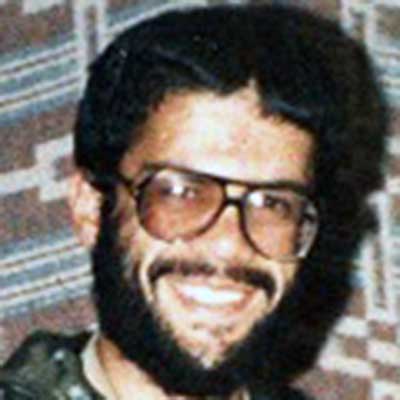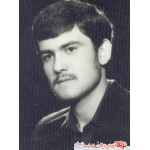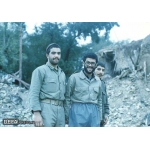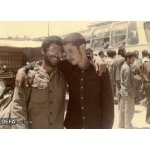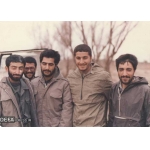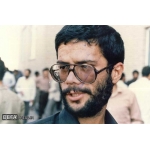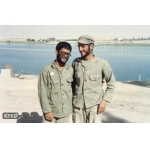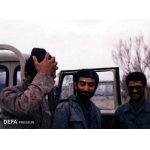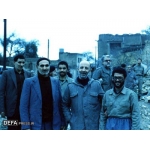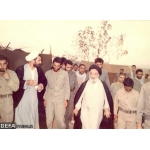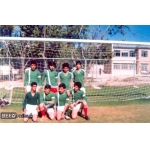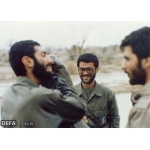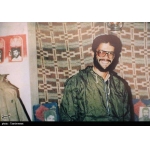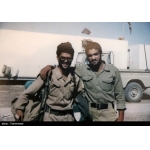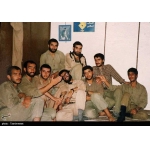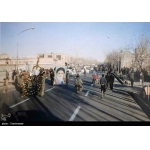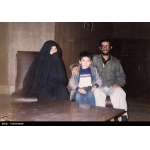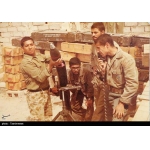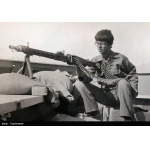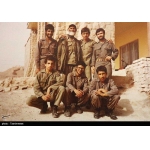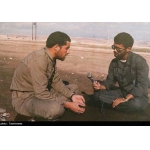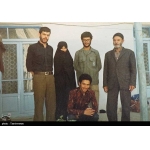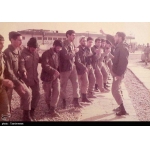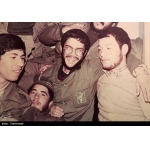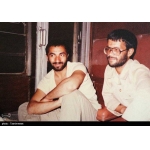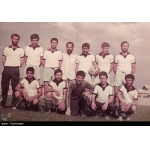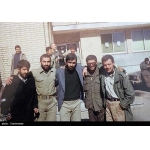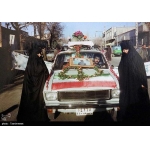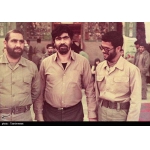Ojaqlu, Naser
Masoumeh Abedini
290 بازدید
Naser Ojaqlu (1962-1986) served as the deputy commander of the Hazrat Abulfazl (as) Battalion within the 31st Ashura Division during the Iran-Iraq War. Born in 1962 in Zanjan, he began his education at a "Maktab khaneh"[1] where he learned the Holy Quran under the guidance of his mother. He completed his primary and secondary education at Shahpour, Kourosh (now Shaheed Chamran), and Pahlavi schools (now Dr. Shariati) respectively. Naser used to work in a tailor shop to make a living. As the struggle against the Pahlavi regime intensified, he began distributing leaflets and recordings of Imam Khomeini’s speeches. During this period, he was arrested and imprisoned alongside Yaqoub Miri, a friend and relative of his who was later martyred. However, both managed to escape from prison after a week.
After the victory of the Islamic Revolution, Ojaqlu completed his diploma and joined the Islamic Revolutionary Guard Corps (IRGC) of Zanjan. He was initially the commander of the Basij forces of the Muslim bin Aqeel Mosque. He later went to Qeydar and Soltaniyeh, towns in the province Zanjan, where he served as the commander of the IRGC of Soltaniyeh. In 1979, he expanded his activities into Kurdistan, showing great determination in identifying and fighting against anti-revolutionary elements, especially the Munafiqeen.
With the onset of the Iran-Iraq War, Ojaqlu deployed to the frontlines, where he took on numerous responsibilities. In 1982, he suffered a severe head injury caused by enemy attacks during operations Beit-al-Muqaddas and Ramadan. A year later, he took command of the Vali-e-Asr Battalion for Operation Kheibar, however, a leg injury would force him to relinquish command. His brother Amir Ojaqlu, who was a squad commander, took over as commander of the battalion. During his recovery, he would visit and take care of the families of martyrs.
After spending several years on the frontlines, Naser Ojaqlu was appointed as the commander of the Qajariyeh training camp, a facility specializing in training divers. This camp was later renamed "Shaheed Naser Ojaqlu Station".
When Operation Valfajr 8 was to be carried out, Ojaqlu eager and determined to participate in the operation, left the training camp and joined the 31st Ashura Division to help Seyyed Ajdar Moulayee, the commander of Hazrat Abulfazl (as) Battalion, as his deputy. When recalling Ojaqlu’s personality, Seyyed Ajdar Moulayee says: "He managed all the affairs of the battalion. Despite some slight differences between some tribes, Ojaklu established strong and stable relations between the forces. He mobilized and unified religious groups and battalions composed of forces from two provinces, establishing a close connection between the forces from Zanjan and Tabriz".
During Operation Valfajr 8, Amin Shariati, commander of the 31st Ashura Division, asked Ojaqlu to assist the troops on the frontline where he managed to successfully rescue a besieged battalion. On March 15, 1987, he was martyred when a bullet hit him and he was subjected to a chemical attack carried out by the Baathist army. His body was laid to rest in the Zanjan Martyrs' Cemetery.[2]
[1] "Maktab khaneh" was a kind of traditional school in Iran where children studied the Holy Quran, Persian literature, and something like that.
[2] A summary of an article published in the Sacred Defense Encyclopedia, Vol. 1, Tehran, The Center of Encyclopedia of the Sacred Defense Research Institute, 2011, Pp. 345-347.


